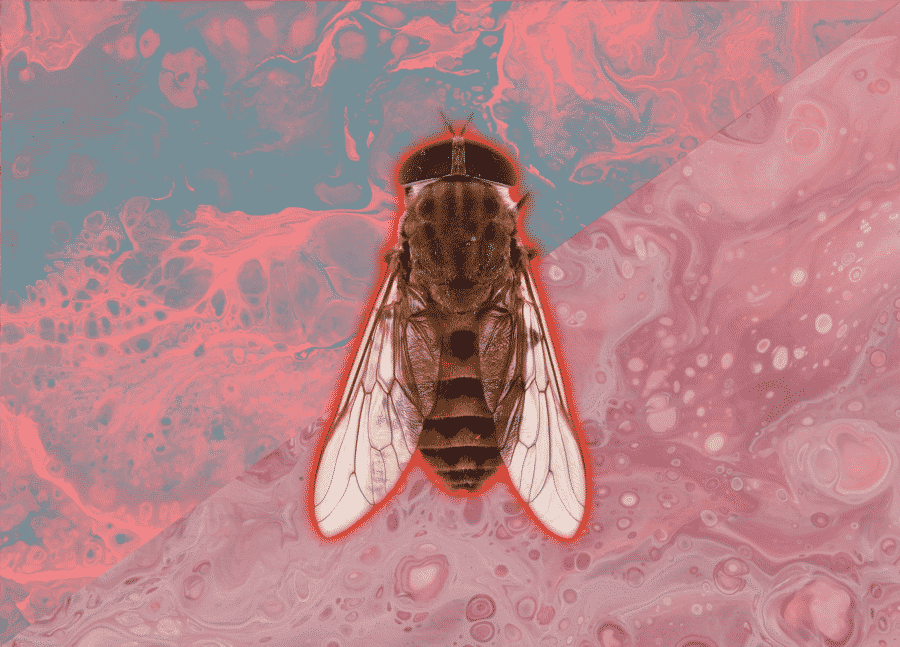Protecting Your Horse from Horseflies
The best way to protect your horse from horseflies is by using specialized sprays, hoods, or other accessories. These products are designed to repel or…

The best way to protect your horse from horseflies is by using specialized sprays, hoods, or other accessories. These products are designed to repel or kill horseflies, preventing them from landing on your horse and biting them. Horseflies can cause infections and other health problems in horses, so it’s important to take steps to prevent them from bothering your animal. Horseflies are a global problem, with the exception of a few isolated locations, so protecting your horse from these pests is crucial.
In the northern hemisphere, horseflies are most common in June and July.
How do horseflies harm horses?
Horseflies are most attracted to the legs, neck, underside, and withers of a horse. Although generally only bumps appear where a horse was bitten, there is the potential for more serious outcomes. As horseflies extract blood they’re able to pass blood-borne diseases from animal to animal. Perhaps the most alarming of these diseases is equine infectious anaemia (EIA), otherwise known as swamp fever. In the most severe cases, EIA can result in sudden death.
EIA is active throughout Europe, the United States, and many other countries. Although all precautions should be taken to prevent your horse from being bitten, a vaccine is available against the disease if the worst should happen.
How to protect your horse from horsefly bites
There are several things you can do to protect your horse from horsefly bites, although the most effective methods are the use of rugs and applying a potent fly spray.
Using a fly rug
It’s vital that your horse is sufficiently covered by a fly rug. It is particularly important that your horse’s underside is covered as it is common for horse-flies to attack this area; both the “Bug Buster” by Premier Equine and the “Vamoose Fly Rug” by Horseware cover the belly area.
It has been shown that darker horses are more attractive to horse-flies, as they are enticed by dark colours and motion. If your horse is particularly susceptible to flies then it’s worth looking into a full-face mask, such as the “Buster Fly Mask Xtra” from Premier Equine which covers the ears and nose. Horse’s eyes can become infected if they’re attacked by horse-flies, so a more basic facemask is important for all horses.
As you’re no doubt aware, the attacks don’t stop when you’re mounted and riding. Aside from sprays a fly-rug that’s meant for use when riding is a great option for deterring flies when hacking – for example, the “Amigo Flyrider” by Horseware.
Using fly spray
Horse-flies are hardy things, and home-made fly sprays rarely act as much of a deterrent. Instead, invest in a good synthetic pyrethroid (SP) (a type of insecticide) from your local tack shop or online. However, note that most SP sprays cannot be applied daily. Furthermore, be aware that some fly species are known to have developed a resistance to the insecticide, so ensure you monitor its effectiveness.
A natural defence against horseflies
Remember, a horse’s tail is its natural defence against flies – it’s not entirely helpless. Also, as horseflies do not like dark and shady areas try and introduce a shaded area to your paddock (planting a tree is a great way of achieving this). Alternatively, consider leaving your horse in it’s stable during the day, and turn it out at night.
Do horseflies bite?
Although horseflies are renowned for their bite, only female horseflies carry out this behaviour. The blood is a source of protein, which is used to produce eggs. helps eggs to be produced.
How to deter horseflies from biting you
To reduce your chance of being bitten wear light clothing, and consider wearing a skin-safe insecticide (often included in suncream).
A bite from a horse-fly can be very painful, and although their bite is not generally harmful, there’s always a chance of infection. You might also develop a rash, dizziness, weakness, wheezing, and/or swelling.
If you are bitten the NHS advise that you clean the area, apply a clean cold cloth (or similar), keep the wound covered to help reduce the risk of infection, and elevate the wound to reduce swelling. If your symptoms don’t improve in a few days, or you were stung around your mouth, throat, or eyes then you should contact your GP or the NHS on 111. For more information, see the up to date NHS guidance.